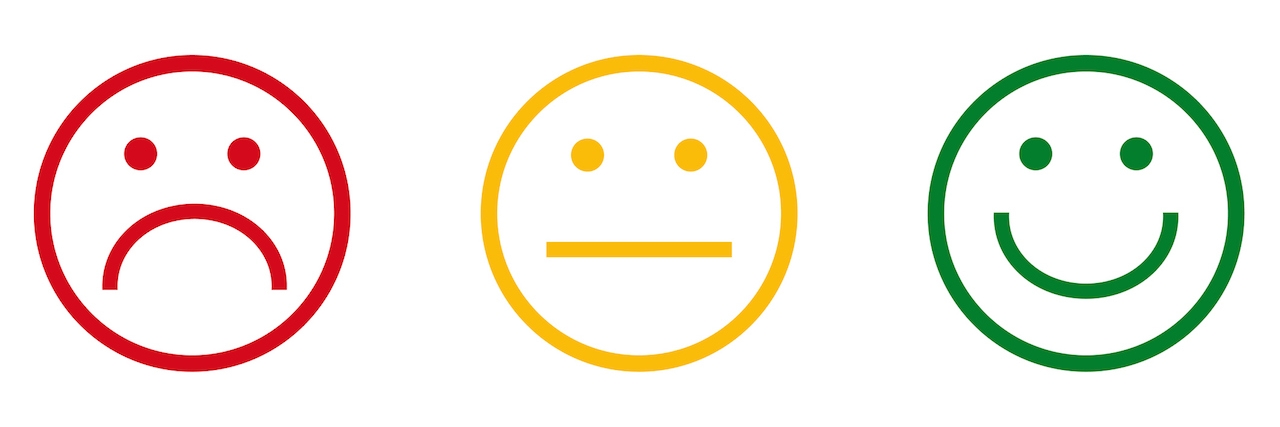“How would you rate your mood?” is a question I’ve become accustomed to hearing since being hospitalized due to a major depressive episode. “One being the worst and 10 being the best.” I think critically about how I’m feeling in the specific moment I’m asked and reduce my mood to a number. This evening, nearly a month since being discharged from the hospital, I’m at a seven. Today was my first day back to work after being on medical leave for the last several weeks. I’m easing myself back into the working world by attending an Intensive Outpatient Program (IOP) in the morning and then working for a few hours in the afternoon.
Today, the first IOP group therapy session focused on daily goal setting. The therapist also asked about each group member’s weekend. I listened as others relayed snippets of their weekend activities, including personal successes, such as how they used their coping skills during anxiety-inducing situations. I waited nervously for my turn, knowing I would have to be honest about how I began my weekend.
I did not have plans on Friday after IOP in the morning, so I was left alone with my thoughts that began to spiral out of control. I felt anxious and near tears as I pondered my worthlessness. I was at a five by the afternoon, thinking no one in my family would notice if I retreated to the basement with a bottle of wine. I slid to a four as I gulped the Riesling and thought about how much I hated myself. I dropped to a three as I distractedly changed the channel to a movie, turned on Netflix and then returned to the movie. Thankfully, my racing thoughts were disrupted when my brother asked if I wanted anything from McDonald’s. In a drunken stupor, I fixated on my crispy chicken sandwich instead of the possibility of self-harming.
Finally, it was my turn to talk in group. I spoke in a low voice as a I confessed my Friday night relapse. I hadn’t used alcohol to self-medicate since the night before I was hospitalized. “It’s brave of you to admit this,” the therapist said encouragingly. She offered ways I could have coped with my feelings instead of drinking, but her voice was muffled by my thoughts of failure. “And how would you rate your mood?” “A six,” I whispered. I sat in the rest of the session unable to focus on the group discussion.
The topic of the next group session was values. The therapist handed out a “What Are My Values?” worksheet to each group member and asked us to select five to six of our most important values. I studied the list of more than 60 values, ranging from attractiveness to world peace, and checked off adventure, family, friends, independence, justice and self-esteem.
My thoughts returned to the weekend, but instead of focusing on Friday, I thought about Saturday and Sunday. On Saturday morning, I awoke with a headache and wanted to remain alone in the basement, hidden in shame. As I lay on the couch, I foggily remembered hearing about a local chapter of the Depression and Bipolar Support Alliance (DBSA) that meets on Saturday mornings. I Googled to find the address and time of the meeting, and excitedly began to get ready to attend. I suddenly had a reason to get off the couch. I was at a five.
Although exhausted from my unsettled sleep the night before and from emotionally opening up at the DBSA meeting, my mom encouraged me not to isolate that night. I went to a friend’s birthday party and laughed with people I hadn’t seen in months. My mood climbed to an eight. The next morning, I spent time with family at my grandma’s house to celebrate her birthday. She smiled as we sang happy birthday to her and watched lovingly as her great-grandson blew out her birthday candle. A ten.
After IOP, I drove to work, my mind moving away from the weekend. What will my co-workers say when they see me? Will they ask me questions about what I’ve been doing? I parked my car in the lot and text my mom: “I don’t think I can go into work (anxious face emoji).” “You can do it,” she responded, “Don’t avoid it.” I waited in the car for another minute. “Practice the techniques you’ve learned,” she reminded me. I reluctantly walked into the office, hoping no one would notice me. My co-workers greeted me with warm smiles and cheerful hellos. They said they missed me and were glad I was feeling better. I sat down at my computer, relieved and began to check the hundreds of unread emails in my inbox. A seven.
I’ve learned my mood will change and circumstances that affect my mood will change. My number may even change several times throughout the day. However, although the number is important, how I cope with my mood is most important. Being honest about how I’m feeling is also important. It’s hard in the midst of a downward depressive spiral to think and act logically, but if I can learn to redirect my negative thoughts, then I can cope with my anxiety and depression in healthier ways.
Just typing that hopeful sentence pushed me to an eight.

